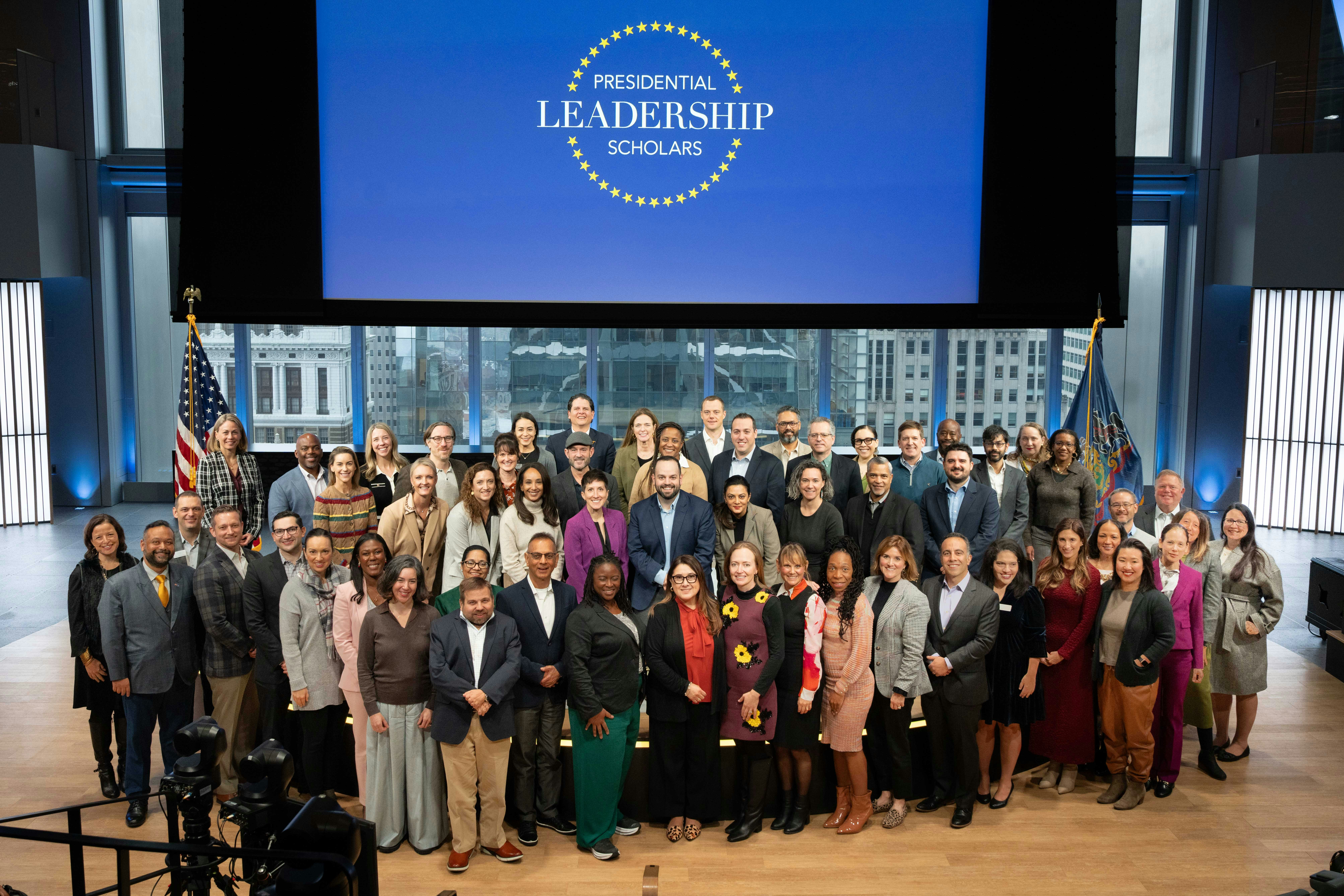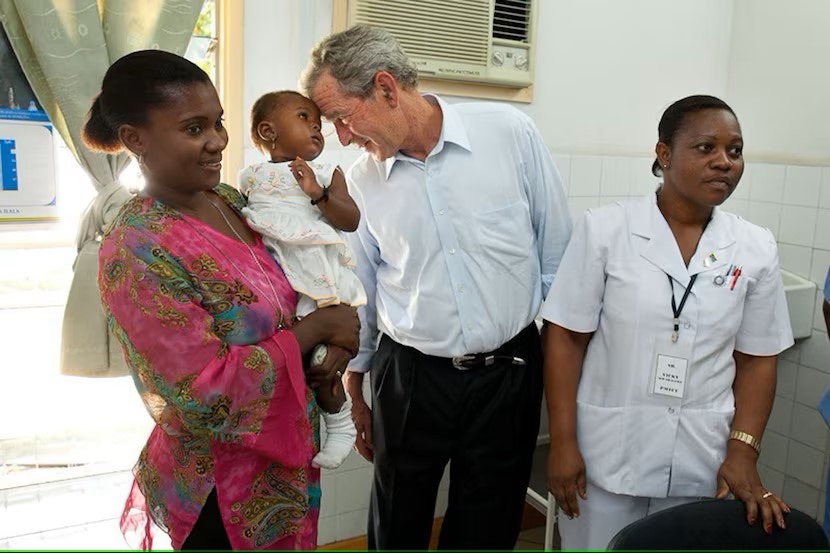Kenneth Hersh, CEO of the Bush Center and co-founder of NGP Energy Capital Management, writes that the ban on imports of Russian energy has made each and every one of us a party to the fight for freedom in Ukraine.
This op-ed was originally published by the Houston Chronicle.
The ban on imports of Russian oil, natural gas, and coal announced this week has made each and every one of us a party to the fight for freedom in Ukraine.
The Ukrainian people are making the ultimate sacrifice on the front lines. It’s time to recognize that we are part of that battle, whether we like it or not. That means beginning to budget for higher prices and to plan for the sacrifices that we may be called on to make. We must be cleareyed about the challenges: Rising commodity prices could result in stagflation like the 1970s. While painful, we survived those conditions 50 years ago, and we have the resilience to persevere again in the name of liberty.
The world changed Feb. 24, when Russian troops driven by Vladimir Putin’s delusional plans to reassemble the former Soviet Union crossed into Ukraine, in complete disregard for the pain and suffering inflicted upon its citizens. And it brought us to this – “Cold War 2.0” in a tripolar world.
The major antagonist – Russia – is the world’s third largest oil producer and the second largest natural gas producer. We are also vulnerable because Russia is also one of the largest producers of palladium – a key input for catalytic converters in cars – and Russia and Ukraine together produce almost a quarter of the world’s wheat.
So this week’s move will hurt Russia and shows our willingness to sacrifice, and I applaud it. But it’s not enough.
The world has begun to sort itself just as it did after World War II. The United States and its European allies, together with other democracies around the world, have lined up against Russia and its goal of extending its sphere of influence. Which means our European allies must also join in the import ban. Germany’s block of the Nord Stream 2 pipeline was a good start, but more is needed.
Make no mistake: It’ll be harder for them. And this will hurt Russia.
Russia sent about 90% of its exported natural gas to Europe and Eurasia in 2020. It satisfies about one third of U.K. and EU gas demand, according to the International Energy Agency. Russia is the largest exporter of oil and petroleum products in the world, representing about 15% of global trade in those commodities. Roughly 60% of that is sold to Europe, while 20% is sold to China, and 15% to the United States, with Japan and Korea taking the balance.
While Germany and other consumers of Russian energy will feel real short-term pain, the long-term benefits of a more secure supply chain will be enormous. Sanctions will hasten the European Union’s diversification away from Russian energy supplies. Clearly, Germany should delay the closure of its remaining six nuclear reactors, part of its flawed green energy strategy.
The move will hurt American consumers for sure, but it’s our way of joining the fight. We imported only 400,000 barrels per day of oil in December, down from 760,000 barrels as recently as July, according to government data. That represents just 2% of our oil demand, an amount easily made up when the inevitable price increase causes demand to drop and supplies to rise. Relative to the Ukrainians’ sacrifices, it is a smaller ask of us.
Our energy industry is already pitching in. Producers have increased drilling somewhat. We must encourage, not discourage, our domestic industry to boost output – easing what has become a hostile regulatory environment – so that they can send those supplies to Europe.
After Pearl Harbor, our Greatest Generation engaged in World War II both militarily and through a reordering of our domestic economy. Not only did enlistments skyrocket, but whole industries retooled. Civilians who couldn’t fight helped in other ways. It was war, and the war involved everyone.
Some might find comparisons to WWII farfetched, but Putin’s latest act of aggression and his stated intent to continue expansion represent the greatest threat to world security since that war ended. The time to stay on the sidelines is over. We have an enormous stake in the outcome of this aggression.
Today, we don’t know if this cold war will escalate into a hot war where NATO armies, led by Americans, confront Russian troops. We certainly don’t want that, but make no mistake, the fight has already begun. We need to be ready to contribute to support freedom, however we can.
And we can’t for a second forget that there is a third pole in this cold war. China is hellbent on extending its sphere of influence, too. Just as Putin took chunks of territory in Crimea with little condemnation from the rest of the world in 2014, China has claimed and begun to militarize a plethora of small islands in the South China Sea whose sovereignty was in dispute.
China is watching the Russian situation closely, given that it views Taiwan in much the same way that Putin views Ukraine – rightful territory for the taking. Consequently, it’s not surprising that China has expressed ambivalence toward the Ukrainian invasion and is remaining noncommittal despite the horrific destruction that is being inflicted upon an innocent country.
How we play the crisis from here will have far-reaching consequences. It can set precedents to either encourage or discourage further upsetting the world order.
The one thing we should not do in attempting to ease energy prices is sacrifice our principles by rushing to appease Iran’s terrorist theocracy just to get their oil back into the market. We should do a deal with Iran that has teeth, and, if that’s not possible, terminate discussions. Our recent outreach to the Venezuelan tyrant is equally unprincipled and shortsighted. Also, from an environmental perspective, it is nonsensical to favor Venezuelan and Iranian production when their drilling practices are not nearly as conscientious as our own.
The sanctions on Russian oil and gas exports send the message that Russia has crossed the Rubicon toward isolation. Coupled with the economic sanctions already enacted, this should signal to average Russians that their deranged leader is taking them down a dead-end road.
The sooner we all recognize that it’s time to gird for battle, the clearer our strategy becomes.
Given the Ukrainians’ sacrifices, it’s the least we can do.






























